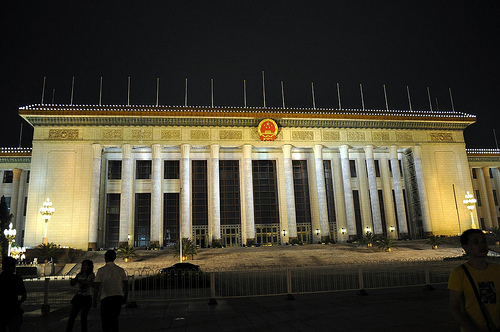The Chinese government generally tries to manage popular discontent by providing various ‘pain relievers’, including programs that quickly address early signs of unrest in the population such as re-employment centres for unemployed workers, migration programs aimed at lowering regional disparities, and the recent ‘new countryside movement’ to improve infrastructure, health care, and education in rural areas. Those measures, Yao concluded, may now be too weak to discourage the emergence of powerful interest groups seeking to influence the government. Although private businesses have long recognised the importance of cultivating the government for larger profits, they are no longer alone in their efforts. Parts of the government itself, as well as state-controlled enterprises, are quickly forming strong and exclusive interest groups. In a sense, local governments in China behave like corporations: unlike in advanced democracies, where one of the key mandates of the government is to redistribute income to improve the average citizen’s welfare, local governments and the people who run them in China simply pursue economic gain.
The Chinese people will not remain silent in the face of these infringements, and their discontent inevitably leads to periodic resistance. Before long, some form of explicit political transition that allows ordinary citizens to take part in the political process will be necessary.
An open and inclusive political process has generally checked the power of interest groups in advanced democracies such as the United States, not perfectly by any stretch of the imagination, but effectively and with sufficient chance of redress. This is the mandate of a disinterested government: to balance the demands of different social groups. A more open Chinese government could still remain disinterested if the right democratic institutions were put in place to keep the most powerful groups at bay. But ultimately, there is no alternative to greater democratisation if the CCP wishes to encourage economic growth and maintain social stability.
David Kelly’s translation of an important study by a team of top scholars from Tsinghua University provides chapter and verse on the issue of managing Chinese social and political discontent. The Tsinghua study is a forensic examination of the growing costs of maintaining social and political stability. These costs are of system-challenging significance and, as Kelly suggests in his essay this week, the world needs to be sensitive and responsive to the dynamic of the huge political transition that they reveal is now in play.

